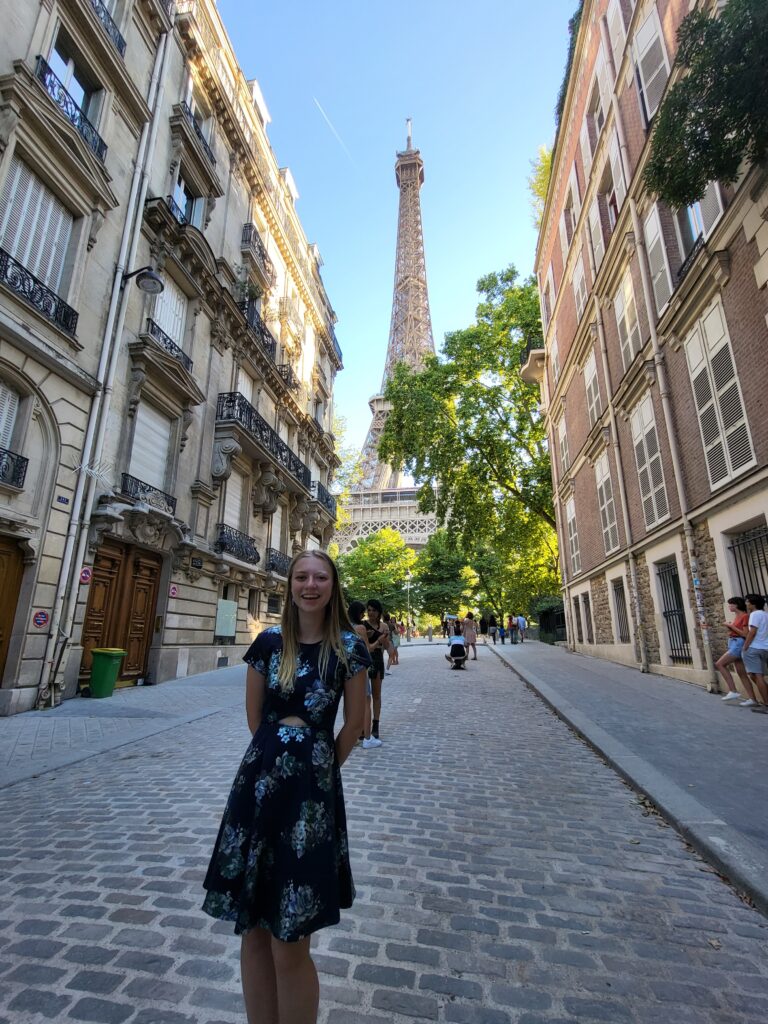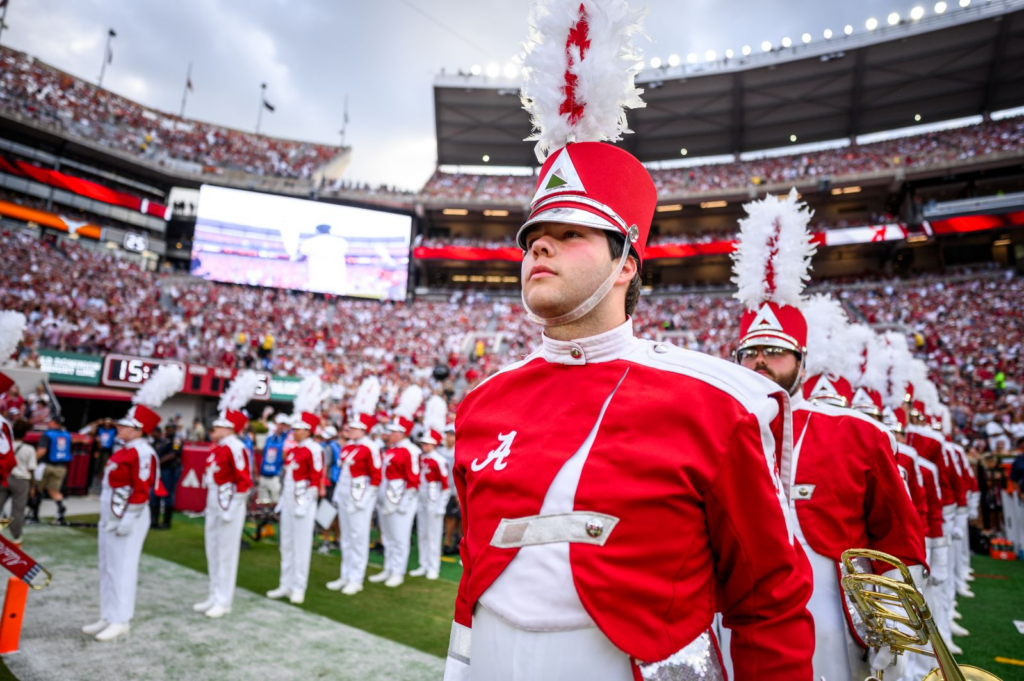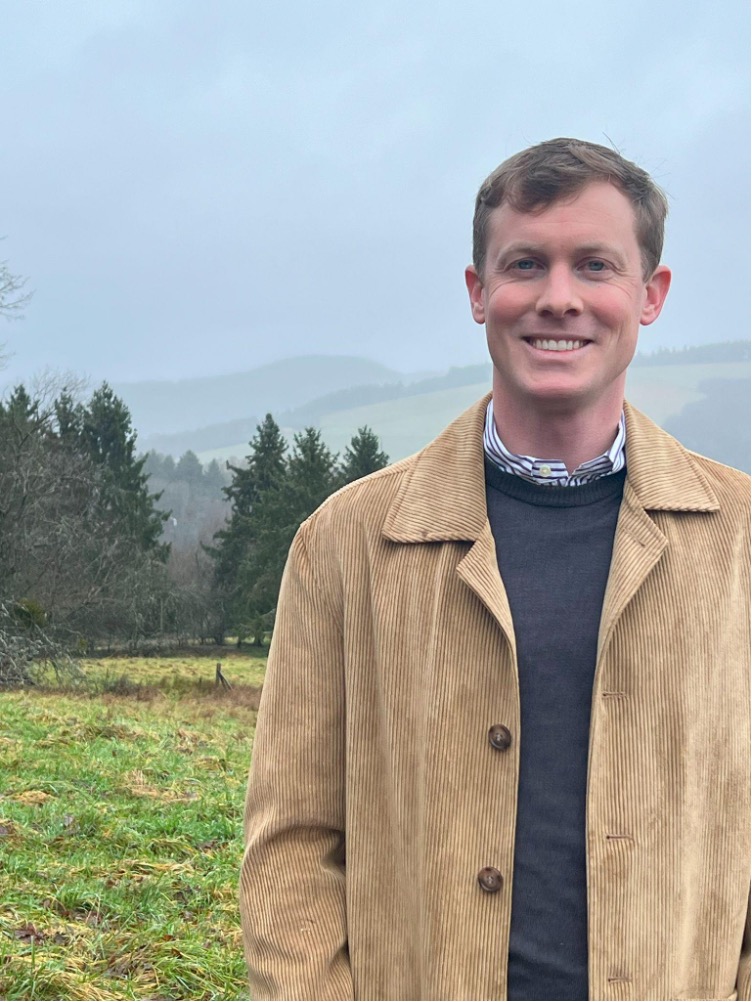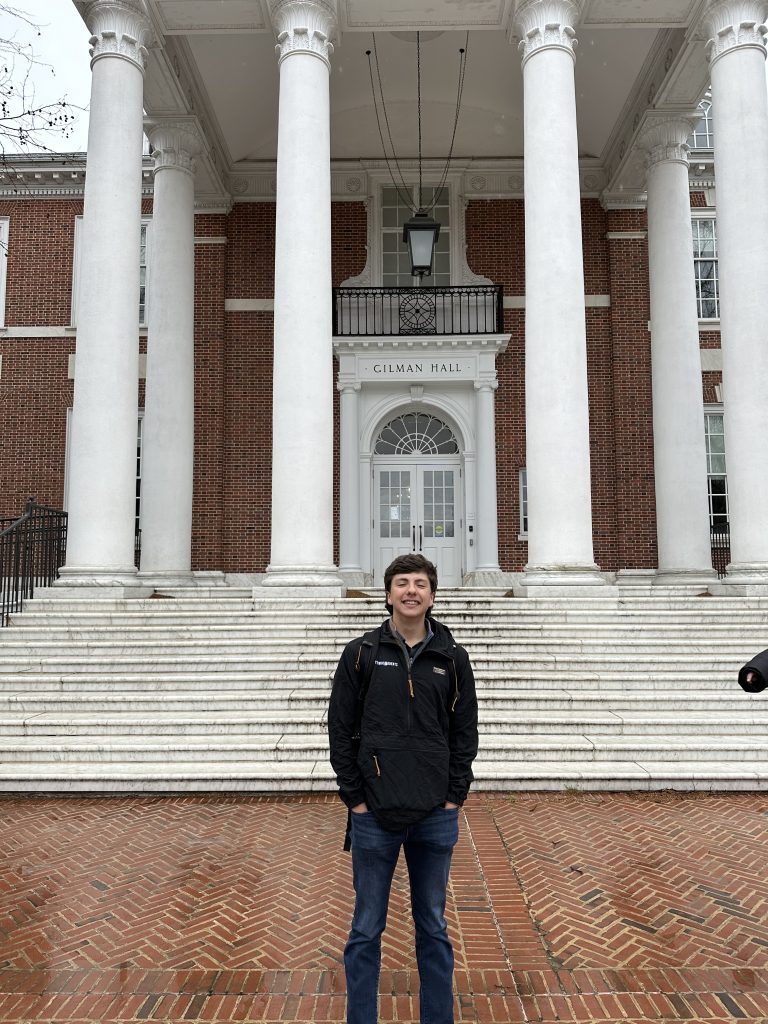
Developing insights into how the world works and skills to engage the digital age are central for student who adds double major in Religious Studies. […]
Read More from Two Interdisciplinary Majors: Adding More Insights and Skills
The REL blog has a variety of ongoing series that are routinely updated.

Developing insights into how the world works and skills to engage the digital age are central for student who adds double major in Religious Studies. […]
Read More from Two Interdisciplinary Majors: Adding More Insights and Skills

What happens when a Criminology and Criminal Justice major takes a Religious Studies class? Well, forDrake Jones, a new major and new perspectives were in store. Drake, one of our majors expecting to graduate this fall (and a trombone player in the Million Dollar Band), came to REL for Dr. Richard Newton’s African Diaspora class in the Spring of 2023. With this class, he contributed significantly to the ongoing effort to digitize and analyze data related to the Decoding Diaspora […]
Read More from Unexpected Paths to Intended Outcomes: Using Digital Tools in Religious Studies

Rhodes Berry learned to analyze and compose arguments as an REL major and those skills have been instrumental in his success as an Air Force lawyer. […]
Read More from From REL Undergrad to an Air Force Major: Learning to Analyze and Construct Arguments

Carter Sheldon a senior at UA was able to work with REL faculty members and eventually present his research at a national presentation. […]
Read More from How an idea can be cultivated into undergraduate research and national presentation

Aidan Nuttall is asking applied questions about data production in his second year of MA studies at REL. […]
Read More from How Did We Get This Information? Questions from a Religious Studies Perspective

People often enter the academic study of religion because of questions and curiosities
that we have about the world around us. Cultivating these curiositiescan lead to new questions about how groups and texts work. […]
Read More from How does curiosity lead to opportunity? A student’s development of new skills
Vincent D. Jennings graduated in May 2020 from the University of Alabama with a dual B.A. in Religious Studies and Psychology. In the Fall of 2019 he began an in-depth study on America’s history of racial violence as part an independent study course with REL’s Prof. Theodore Trost — which culminated in this four-part series. With the evolution of slavery in mind, consider a recent movie entitled “Just Mercy,” which chronicles the fight of the Equal Justice Initiative to defend […]
Vincent D. Jennings graduated in May 2020 from the University of Alabama with a dual B.A. in Religious Studies and Psychology. In the Fall of 2019 he began an in-depth study on America’s history of racial violence as part an independent study course with REL’s Prof. Theodore Trost — which culminated in this four-part series. Of all the violations deemed worthy of lynching an African American, no offense or accusation stirred the level of vitriol and incited the level of […]
Vincent D. Jennings graduated in May 2020 from the University of Alabama with a dual B.A. in Religious Studies and Psychology. In the Fall of 2019 he began an in-depth study on America’s history of racial violence as part an independent study course with REL’s Prof. Theodore Trost — which culminated in this four-part series. Between 1868 and 1871, a wave of terror swept across the South, resulting in the deaths of thousands of freed African Americans for simply asserting […]
Vincent D. Jennings graduated in May 2020 from the University of Alabama with a dual B.A. in Religious Studies and Psychology. In the Fall of 2019 he began an in-depth study on America’s history of racial violence as part an independent study course with REL’s Prof. Theodore Trost — which culminated in this four-part series. In that land…, that land…, that land…, in that great BIG BEAUTIFUL land… Lord you know I will fare better in that land…. Sitting on […]